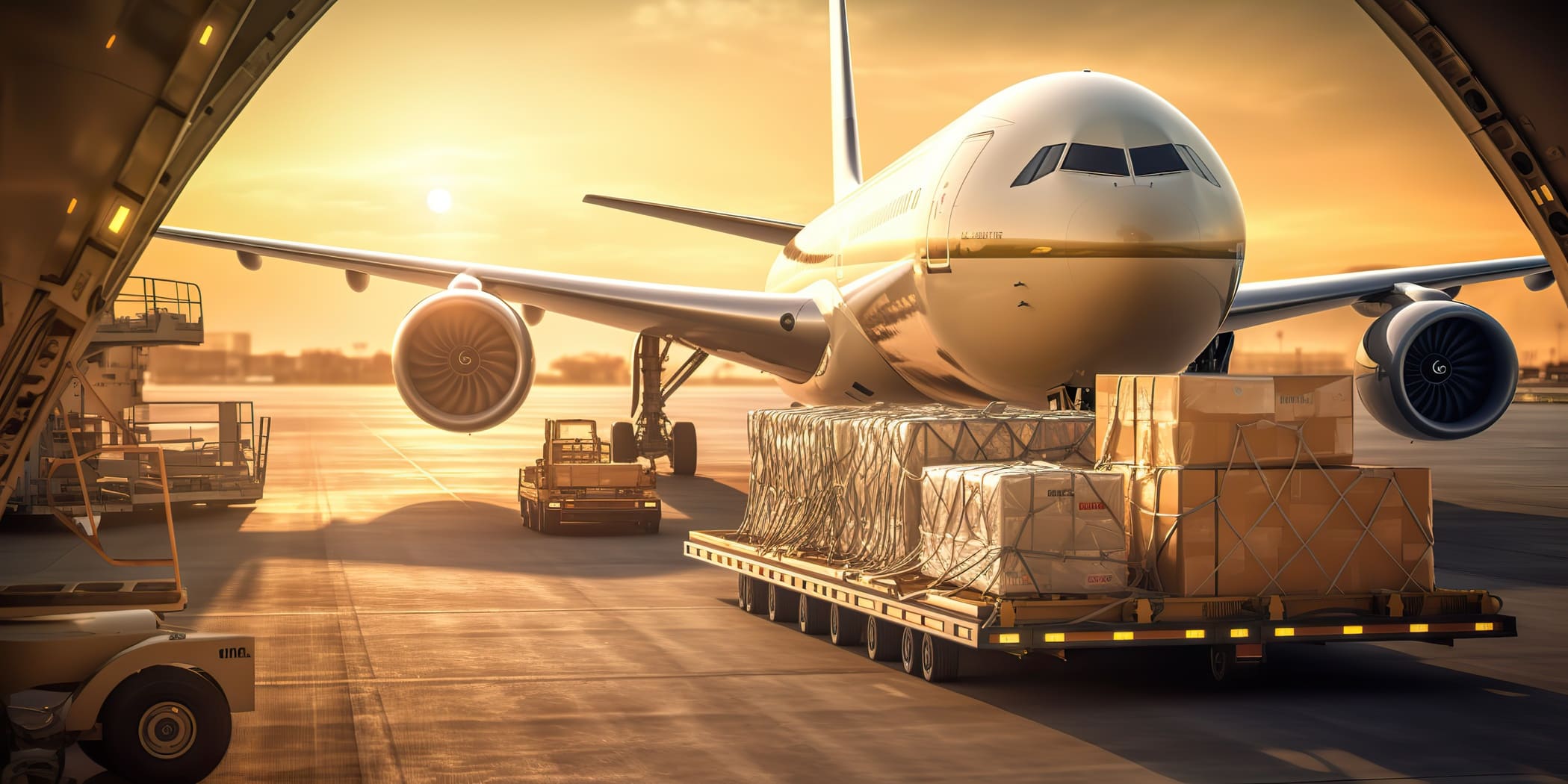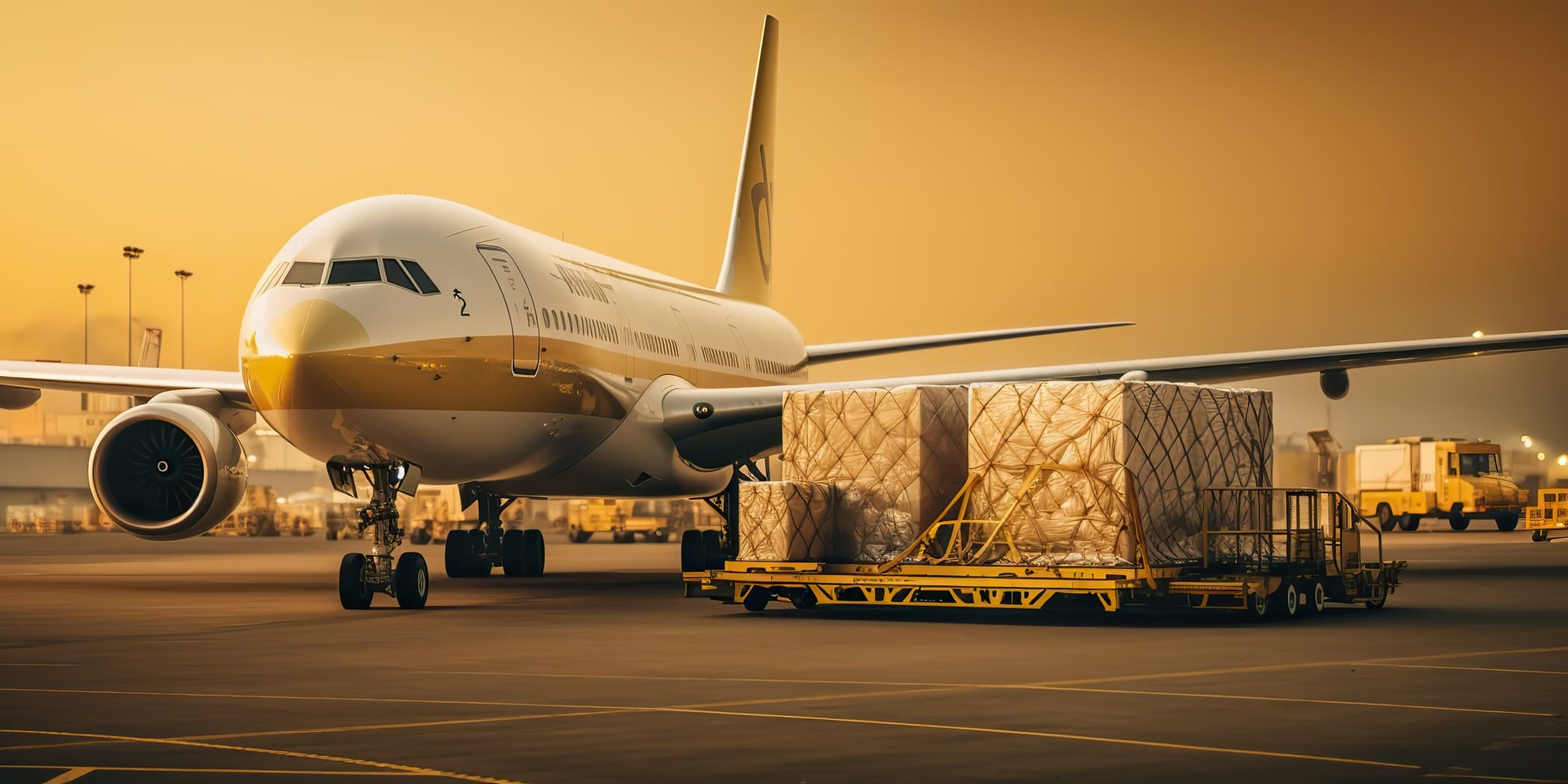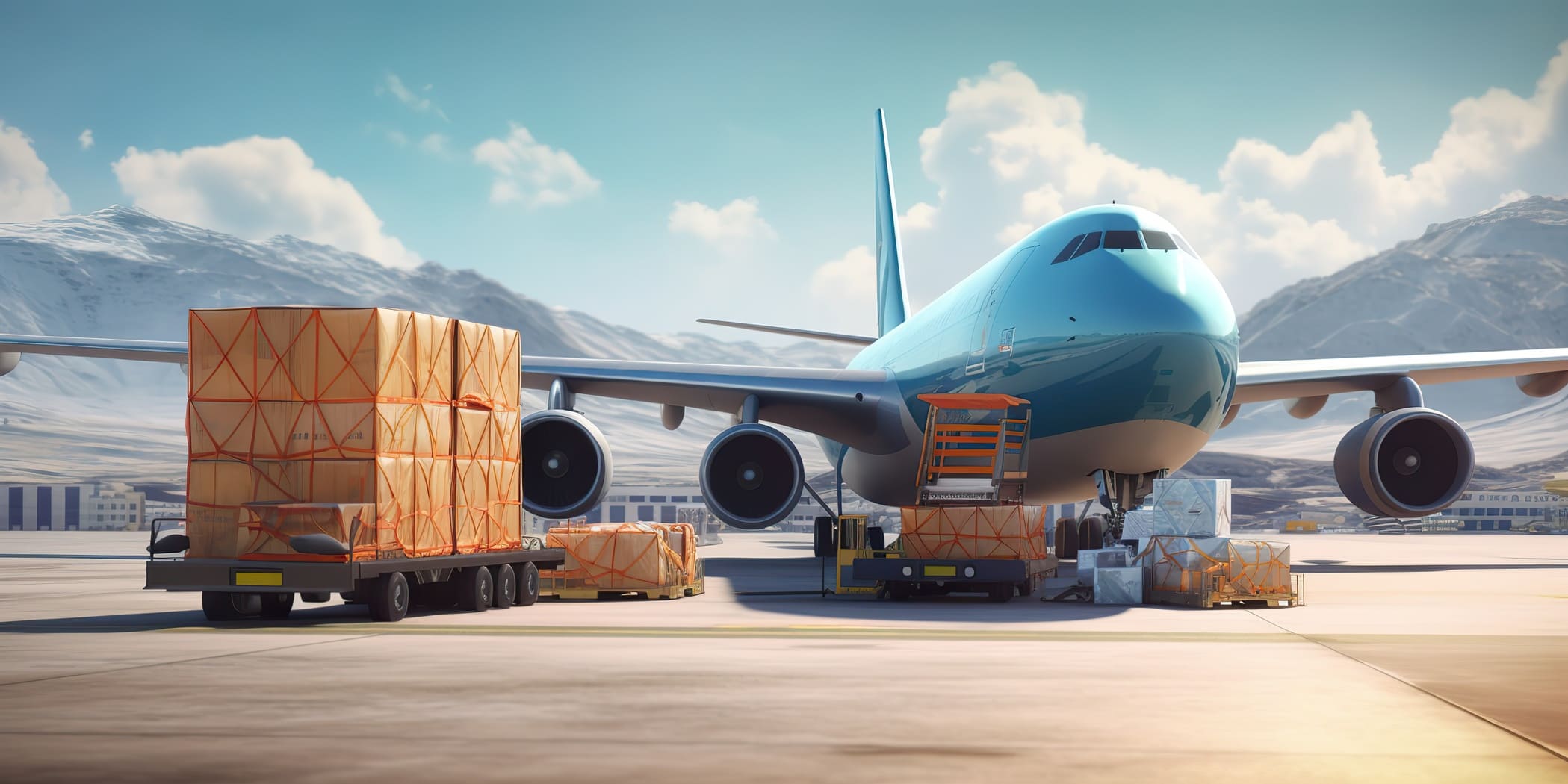Air Freight Company
Air freight is the fast-track expressway for global cargo, soaring through the skies to deliver time-sensitive goods with speed and efficiency.

The Evolution of Air Freight Companies in the Modern Era

At the forefront of modern commerce, an air freight company acts as a bridge connecting manufacturers, suppliers, and consumers on a global scale. Through strategic partnerships with airlines, ground handling services, and customs authorities, these companies optimize the logistical journey of goods, ensuring they traverse international borders seamlessly. Advanced tracking systems and real-time communication further enhance transparency, allowing clients to monitor their shipments’ progress at every stage.
The adaptability of air freight companies is especially crucial in addressing the ever-evolving demands of industries such as e-commerce, where rapid fulfillment is a competitive necessity. As environmental concerns come to the forefront, these companies are also exploring sustainable practices and technological innovations to minimize their carbon footprint. In essence, an air freight company is not merely a transporter of goods; it is a key facilitator of global trade, contributing to the interconnectedness of economies and the efficiency of supply chains worldwide.
In the dynamic landscape of global trade and commerce, the role of air freight companies has undergone a remarkable transformation. The evolution of these companies can be attributed to advancements in technology, changes in consumer behavior, and the increasing demand for swift and reliable shipping solutions.
In recent years, air freight companies have become pivotal players in the logistics industry, offering unparalleled speed and efficiency in the transportation of goods. The advent of sophisticated tracking systems and state-of-the-art aircraft has enabled these companies to provide real-time visibility and control over shipments, fostering a level of transparency that was once unimaginable.
The globalization of markets and the rise of e-commerce have further propelled the growth of air freight companies. Businesses now require rapid and secure transportation of goods to meet the ever-increasing expectations of consumers. Air freight not only reduces transit times but also allows for the timely delivery of perishable and high-value items, catering to the diverse needs of industries ranging from electronics to pharmaceuticals.
Moreover, air freight companies have embraced sustainability initiatives, investing in fuel-efficient aircraft and adopting eco-friendly practices. This commitment to environmental responsibility not only aligns with global efforts to reduce carbon emissions but also enhances the reputation of these companies in an environmentally conscious marketplace.
As we look to the future, the continued evolution of air freight companies is inevitable. With advancements in automation, artificial intelligence, and data analytics, these companies are poised to further optimize their operations, minimize costs, and provide even faster and more reliable services. The journey from traditional freight to modern air cargo solutions exemplifies the adaptability and resilience of the logistics industry in meeting the evolving demands of the global economy.
The Key Players in the Air Freight Industry: A Comparative Analysis

The air freight industry is a complex network of companies competing to offer the most efficient and reliable transportation solutions for goods around the world. Understanding the key players in this industry is crucial for businesses seeking optimal logistics partners. Here, we provide a comparative analysis of three prominent air freight companies – UPS, FedEx, and DHL.
UPS, a global logistics giant, boasts an extensive air freight network with a fleet of dedicated cargo planes. The company’s focus on technology integration and supply chain solutions has positioned it as a preferred choice for businesses with diverse shipping needs. FedEx, another major player, is renowned for its global reach and innovative services, including FedEx Express, which specializes in time-sensitive shipments.
DHL, a division of the German logistics company Deutsche Post DHL Group, has established itself as a leader in international express shipping. With a strong presence in emerging markets, DHL offers a comprehensive range of air freight services, including freight forwarding and customs brokerage.
Comparing these companies reveals distinct strengths and capabilities. UPS excels in providing end-to-end supply chain solutions, while FedEx is recognized for its focus on express delivery services. DHL, with its global footprint, is a preferred choice for businesses with a significant international presence.
In an industry where speed, reliability, and global reach are paramount, businesses must carefully evaluate the offerings of these key players to align with their specific logistics requirements.
Navigating Challenges: How Air Freight Companies Overcome Obstacles

While air freight companies play a vital role in global trade, they face numerous challenges that require innovative solutions to ensure seamless operations. From fluctuating fuel prices to geopolitical uncertainties, navigating these obstacles is essential for the sustained success of air freight companies.
One of the primary challenges faced by these companies is the volatility of fuel prices. The reliance on aviation fuel makes air freight susceptible to cost fluctuations, impacting operational expenses. To address this, companies invest in fuel-efficient aircraft, explore alternative energy sources, and implement strategic fuel hedging to mitigate financial risks.
Geopolitical uncertainties and regulatory changes also pose significant challenges. Air freight companies must stay abreast of international trade regulations, customs procedures, and security protocols. This requires robust compliance teams and adaptable systems to ensure smooth cross-border operations.
Infrastructure constraints, such as airport congestion and limited runway capacity, are additional hurdles. Air freight companies address these challenges through strategic route planning, investment in airport infrastructure, and collaboration with authorities to optimize logistical processes.
In conclusion, the ability of air freight companies to navigate and overcome challenges is a testament to their adaptability and commitment to providing reliable and efficient transportation solutions. As the industry continues to evolve, addressing these challenges will be pivotal in shaping the future of air freight and ensuring its continued contribution to the global economy.
Related Articles
alive2017com 2023 - Copyright © All rights reserved.
